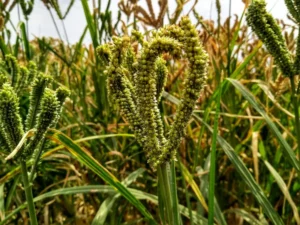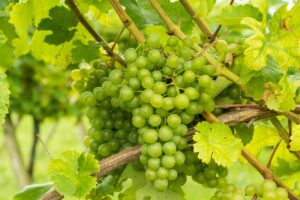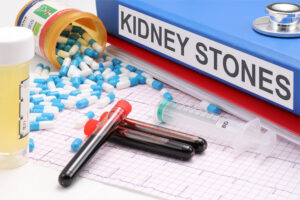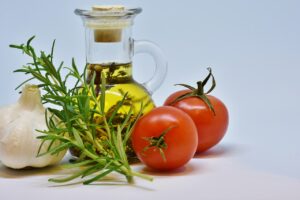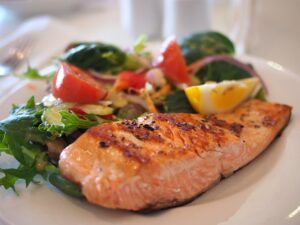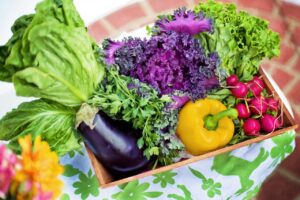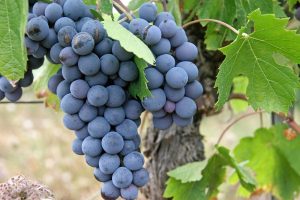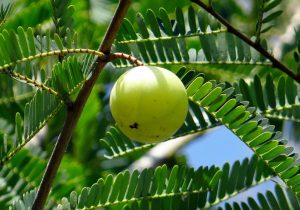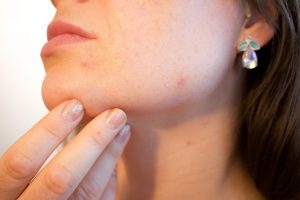What nutritional requirements for elderly?
It’s difficult to prepare one well-balanced meal a day, much alone three. Caregiving is always challenging, but if your loved one has unique dietary requirements or has difficulty tasting the food you prepare, it becomes much more difficult.
On the other hand, food is the body’s primary source of energy and medication. Good diet becomes even more critical in the case of an older adult with a long-term medical condition. However, eating healthfully isn’t only about watching your weight and reading nutrition labels. Good food is one of life’s essential joys, and it can be enjoyed by anybody, regardless of age. There are a few things to keep in mind while preparing meals for that will help alleviate some stress.
When it comes to aging seniors, what is nutrition?
To provide your body with the nutrients it requires, good nutrition entails following a well-balanced diet. To operate and develop properly, our bodies need nutrients in our foods. In addition to water and other essential nutrients such as carbs and lipids are also included.
Regardless of your age, a healthy diet is essential. It provides you with a boost of energy and might help you maintain a healthy weight. Some disorders, including osteoporosis, high blood pressure, heart disease, type 2 diabetes, and a few types of cancer, maybe help as a preventative measure.
Although your body and life change as you get older, so do the things you need to maintain a long and healthy life. To provide an example, although your caloric requirements may be lower, you must still ensure that you’re getting adequate nutrients. Confident older adults need protein.
Precisely what does it mean to have a well-balanced diet mean?
Protein should mainly come from chicken and lean meat, with low-fat dairy products rounding out your diet.
To maintain a well-balanced diet, you must also avoid some meals, such as those that have been highly processed or include a lot of salt. If you want to eat a nutritious diet that is also well-balanced, you need to pay particular attention to how much fat and cholesterol you consume.
A well-balanced diet should also include micronutrients. In tiny quantities, micronutrients, including vitamins and minerals, are required.
What To Eat When You’re Over 65 Years Old
Anybody who wants to eat healthily should start with the Australian Dietary Guidelines. With the help of several food and nutrition professionals and community members, the NHMRC established these recommendations.
Nutritional guidelines are designed to help people achieve and maintain optimal health by using the most current research on the best foods, serving sizes, and eating habits that have been shown to do so.
Your body, mind, and social life will benefit from a nutritious diet. You’re more likely to develop chronic illnesses like cardiovascular disease, type 2 diabetes, certain malignancies, and even mental health disorders like anxiety and depression if you don’t make healthy food and beverage choices. The social benefits of a well-balanced diet may also be gained by engaging in social activities regularly.
- Drink at least six to eight glasses of water each day to stay hydrated.
- Consume foods low in saturated fat, such as baked goods, pastries, pies, processed meats, industrial burgers, and pizza.
- Reduce the amount of fat in your diet by substituting polyunsaturated and monounsaturated fats for saturated fats. Avocado and other unsaturated fats may replace saturated fats found in foods like butter and cooking margarine and coconut and palm oil.
- Don’t over-salt your meals or drinks, and cut out on salty snacks and beverages.
- Cut down on sugary meals and beverages, such as candy, soda, cordials, fruit drinks, vitamin water, and energy and sports drinks.
- Drink with moderation. Don’t exceed the recommended daily limit of two standard alcoholic beverages.
- Make time to work out. Exercise 30 minutes a day for at least 30 minutes, such as walking.
-
Older adults may also benefit from the following more specialized advice:
- Maintain healthy body weight and muscle mass by engaging in regular physical activity (Exercise). According to research, people over the age of 65 tend to be healthier if they have a bit more weight and a higher BMI. If you’re trying to reduce or gain weight, see your doctor first.
- If you’re on a tight budget, your best bet is to be creative in your food selections. It’s essential to have a strategy in place before making any purchases. Seek out fast and simple nutritious meals that serve one or two people, and dine with loved ones and friends frequently if at all feasible.
- Saturated and trans fats should be limited in your diet. Those ‘extras’ or ‘occasional foods’ mentioned in the rules are still relevant. To a minimum, use those. Saturated and trans fats may be found in meals like pies, pastries, fried and battered dishes, chips, and chocolate. Only eat these items once or twice a month. Oatcakes and crumbles created with wholegrain choices like oats may be a healthy dessert option. You should talk to your doctor about your specific health issues, including how to best adhere to the dietary guidelines that advise against consuming excessive saturated fat, salt, or sugar (above). Restricting their food intake may put some elderly nutrition adults at risk of malnutrition since they get too few nutrients and calories for their age.
- Drink lots of water and eat a lot of fiber. Even while water is necessary for your body’s hydration, digestion, and blood volume, as you age, you may not be as thirsty as you once were. Drink extra water when the weather is warmer or while you’re working out to meet the recommended daily fluid intake of 6–8 cups. For hydration, water is your best choice. However, you may also drink tea and coffee, mineral and soda water, and low-fat milk. You may speed up the movement of your intestines by eating meals high in fiber and drinking lots of water.
- Reduce the amount of salt you use. Everyone requires some salt, but overconsumption might raise your hypertension and heart disease risk. Eat less cured meats (ham, bacon, corned beef, etc.), snack foods (potato chips, savory pastries, etc.), and sauces that are heavy in salt (soy sauce, for example). You may use herbs and spices instead of salt to flavor your meals while buying and cooking.
- Keep an eye on how much alcohol you’re consuming. Do not exceed two standard drinks a day for men and women who are in good health, according to Australian guidelines:
- Make sure you’re getting your recommended daily allowance of vitamins and minerals. A lack of vitamins and minerals may result from a lack of food intake or a problem with your digestive system. Choose a range of meals from each of the five food categories and talk to your doctor about your levels.
- Fish is an excellent ally to have. You may minimize your risk of heart disease, stroke, dementia, and age-related macular degeneration by eating fish regularly (a type of vision loss). Fish should be consumed at least twice a week.
Nutrition Related Health Issues In The Elderly
Economic stress, poor dental health, aging tissues, and a poor diet increase the risk of poor nutrition in the elderly. The following are some of the most frequent elderly nutrition problems are faced:
Osteoporosis
In osteoporosis, bone mass and density are both reduced. Because of this, bones become more brittle and prone to fractures. After menopause, women are more likely to develop osteoporosis.
Obesity
Obesity is a problem among the elderly. They don’t reduce their caloric intake to match their lowered energy requirements.
Anemia
Symptoms of anemia include feeling tired, anxious, and lacking in energy. Dietary deficiency, reduced absorption or absence of haem iron, vitamin C, or blood loss can contribute to iron inadequacy. Vitamin B12 insufficiency is a significant cause of pernicious anemia in older women. Foods high in hemoglobin and vitamin B12 should be included in the elderly’s diet. Find the best nutritional supplements for elderly in India.
Finally,
What are the nutritional needs of an elderly person? No of your age, good nutrition is critical to your overall well-being. Maintaining a nutritious diet becomes even more critical as we age since it may help us deal with persistent diseases and other health issues.
A healthy diet and a healthy lifestyle may help you maintain or enhance your overall well-being. Some illnesses, such as high blood pressure, diabetes, osteoporosis, and some malignancies, may be prevented by eating a healthy diet and exercising regularly.
Unfortunately, your physical and mental well-being deteriorate with time—consequently, the things you need to keep healthy vary. Consequently, For example, you may require a lower calorie intake or more protein.
FAQs:
-
What is the most vital food category for the elderly?
Every meal should contain a variety of veggies and fruits. The suggested vegetable-to-fruit ratio is two-thirds vegetables and one-third fruits since the former contains fewer sugar and calories than the latter.
-
What is a healthy diet for an 80-year-old?
Dietary fiber, which is found in vegetables and fruits, and whole grains, aids in regulating the bowels. You can make tough veggies like carrots and broccoli more easily chewable by a gentle steaming method. You may find bran in many morning bowls of cereal, including oatmeal, rich in fiber.
-
Is oatmeal safe for the elderly?
This breakfast staple is an excellent option for the elderly because of its low price and a wide variety. Easy-to-prepare oatmeal might help your loved one avoid constipation and other health issues. In addition to lowering blood pressure and glucose levels, high-fiber diets provide other health benefits.
Also Read : Cyclist Nutrition : What to Eat and Drink As Per Distance






